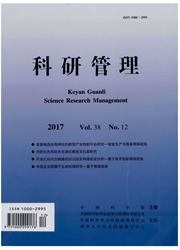

 中文摘要:
中文摘要:
本文结合授权理论、心理投入理论和个体学习理论,提出了领导授权行为对员工学习能力的影响机制模型,通过调查问卷实证分析了领导授权行为对员工个体学习能力影响的作用机制。研究发现:(1)领导授权行为显著的促进了员工的心理认知,包括员工的领导认同感、同事信任感、心理授权感和心理安全感;(2)员工的领导认同感和同事信任感中介领导授权行为对员工心理授权的影响;(3)员工的领导认同感和同事信任感中介领导授权行为对员工心理安全的影响;(4)员工的心理安全感将促进员工的心理授权感;(5)心理授权感和心理安全感共同作用促进员工的个人学习能力。领导授权行为对员工个人学习能力的影响机制表现为两条路径,一条是促进员工个人学习能力的"激励"路径,领导授权行为通过影响员工领导认同和同事信任、进而促进员工的心理授权感;另一条是减少员工个人学习阻力的"保健"路径,领导授权行为通过影响员工领导认同和同事信任、进而促进员工的心理安全感,最后由心理授权感、心理安全感共同促进员工的个人学习能力。本文丰富和发展了组织学习理论,同时提出了未来需要改进的方向。
 英文摘要:
英文摘要:
Synthesizing theories of empowering leadership, psychological engagement and individual learning capability, this paper built up and tested a theoretical model linking leader empowering behavior and employee individual learning capability via several intervening variables. The result showed that: (1) leader empowering behavior had significant positive impact on employee leader identification, colleague trust, psychological empowerment and psychological safety; (2) the relationship between leader empowering behavior and employee psychological empowerment was mediated by leader identification and colleague trust; (3) the relationship between leader empowering behavior and psychological safety was mediated by leader identification and colleague trust; (4) employee psychological safety was positively related to psychological empowerment; (5) employee psychological empowerment and safety had a positively influence on individual learuing capability. Leader empowering behavior affected individual learning capability via two psychological mechanisms. One is "motivational path" which increased individual learning capability - leader empowering behavior positively affected leader identification and colleague trust, which in turn influenced psychological empowerment. The other path is "hygiene path" which decreased obstacles for individual learning - leader empowering behavior positively affected leader identification and colleague trust, which in turn influenced psychological safety. Psychological empowerment and psychological safety jointly advanced individual learning capability. This study mainly makes contributions to the field of organizational learning
 同期刊论文项目
同期刊论文项目
 同项目期刊论文
同项目期刊论文
 Trends in China’s gender employment and pay gap: estimating gender pay gaps with employment selectio
Trends in China’s gender employment and pay gap: estimating gender pay gaps with employment selectio Linking Gender Role Orientation to Subjective Career Success The Mediating Role of Psychological Cap
Linking Gender Role Orientation to Subjective Career Success The Mediating Role of Psychological Cap Effect of Organizational Politics on Employees’ Work Responsibility: Empirical Analysis Based on New
Effect of Organizational Politics on Employees’ Work Responsibility: Empirical Analysis Based on New Learning goal orientation and creative performance: The differential mediating roles of challenge an
Learning goal orientation and creative performance: The differential mediating roles of challenge an Roles of creative process engagement and leader-member exchange in critical thinking and employee cr
Roles of creative process engagement and leader-member exchange in critical thinking and employee cr Human Capital Investment in Children: An Empirical Study of Household Child Education Expenditure in
Human Capital Investment in Children: An Empirical Study of Household Child Education Expenditure in Evidence on the impact of sustained exposure to air pollution on life expectancy from China’s Huai R
Evidence on the impact of sustained exposure to air pollution on life expectancy from China’s Huai R Relational Versus Collective Identification Within Workgroups: Conceptualization, Measurement Develo
Relational Versus Collective Identification Within Workgroups: Conceptualization, Measurement Develo 期刊信息
期刊信息
